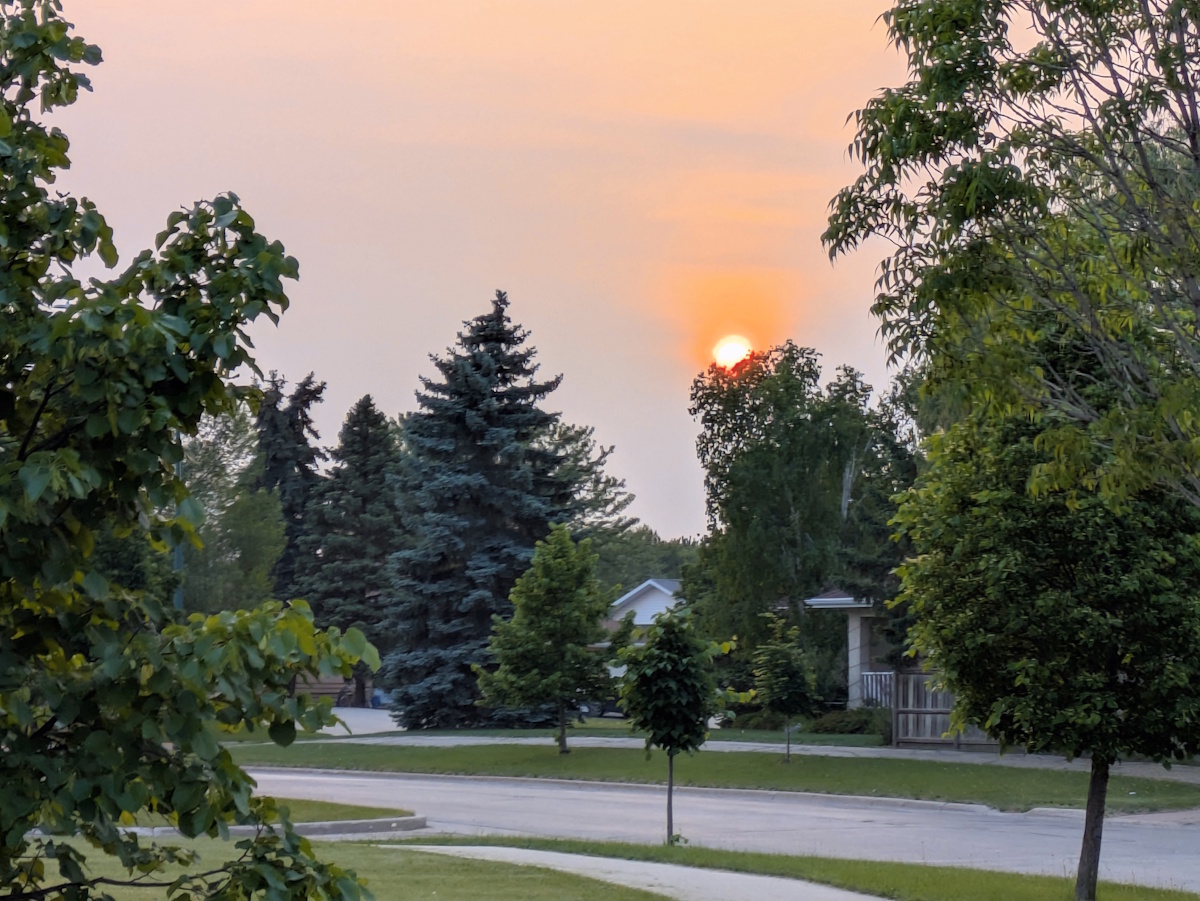Wildfire smoke has posed a very high health risk to Southern Manitoba residents at various points this month.
That is according to the Air Quality Health Index or AQHI. According to the Manitoba Lung Association, the AQHI is based on the combined levels of three different air pollutants. Those three are ground-level ozone, nitrogen dioxide, and fine particulate matter.
When the AQHI is considered very high at-risk populations are encouraged to avoid strenuous activities outdoors. Children and the elderly should also avoid outdoor physical exertion. The general population is encouraged to reduce or reschedule strenuous activities outdoors, especially when experiencing symptoms such as coughing and throat irritation.
Juliette Mucha is President and Chief Executive Officer of the Manitoba Lung Association. She says any smoke is bad for someone's health, especially their respiratory system. Mucha says Manitoba has now had three consecutive years of bad wildfire seasons and these seasons seem to be starting earlier and earlier.
"The smoke from these forest fires can travel hundreds of kilometres away," says Mucha. "So, we need to be vigilant, to take the necessary precautions for our lung health."
If you are looking to compare wildfire smoke to cigarette smoke, Mucha warns that their compositions are very different. However, she notes that some studies have shown that depending on the amount of exposure, breathing in wildfire smoke can be compared to smoking a cigarette. Mucha says research has shown that spending a day outdoors when the air quality is considered "unhealthy for sensitive groups" could be the equivalent of smoking seven cigarettes.
"So, if you have made the conscious decision to not smoke or vape, why would you put yourself into that position?" asks Mucha.
According to Mucha, some of the immediate impacts of breathing in smoke include watery eyes, coughing, or inflammation in the lungs.
Mucha explains that lungs continue to grow until a person is in their mid-20s; following that, there is natural degeneration. She notes the degeneration increases for those who smoke or have extended periods of exposure to wildfire smoke.
"It's a matter of making sure you are able to have some clean air to breathe to not accelerate that degeneration of your lungs," Mucha explains.
She adds that for those who do strenuous activities outdoors, such as physical labour or exercising, the damage to the lungs is magnified. In such circumstances, Mucha suggests wearing an N95 mask or taking breaks by going into an air-conditioned room.
For those who do not need to spend time outdoors on a day like today, Mucha suggests checking out the AQHI on the Manitoba Lung Association website to see what it shows for their community. She adds this should allow people to make informed decisions. Mucha suggests people keep their windows closed and use an air purifier if possible. If you have to leave your home, she advises people to wear an N95 mask, especially those with a pre-existing lung condition. In the car, she recommends having the air conditioning set to re-circulate mode. And, if air conditioning is not an option at home, Mucha suggests going to a local shopping mall or library in order to give your lungs a break.
And finally, Mucha says it is important to drink lots of water on these days, noting water is naturally inflammatory-resistant and will give your lungs the best chance to stay healthy.
